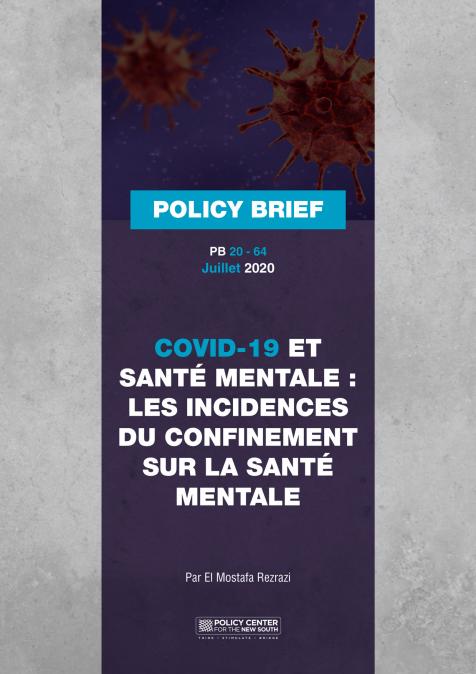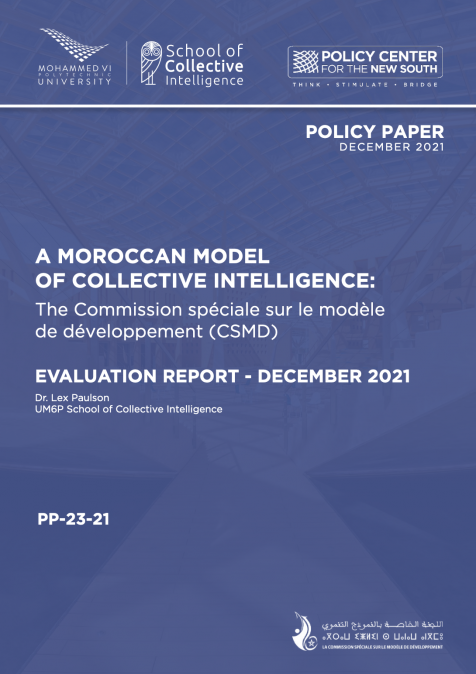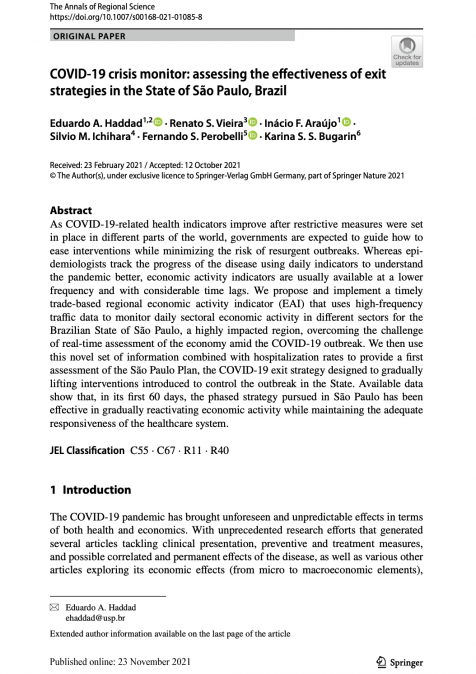Publications /
Policy Brief
La propagation de la COVID-19 à l’échelle mondiale a provoqué un état de peur et d’anxiété généralisé, d’abord en raison des craintes d’infection et de l’angoisse de la mort, puis à cause des incertitudes durables autour de la nature de l’épidémie, ses modes de transmission, son degré de férocité, et l’efficacité des protocoles d’intervention thérapeutiques permettant de sauver les contaminés. Il convient de distinguer deux situations souvent confondues : D’une part, les effets psychologiques provoqués par la peur de la propagation de la pandémie et de sa férocité – et donc trouvant à leur source une menace pour la pulsion de la vie– et, d’autre part, ceux engendrés par les mesures visant à lutter contre la pandémie, y compris le confinement.









